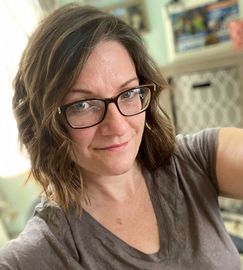- About Us
- Advertise / Support
- Editorial Board
- Contact Us
- CancerNetwork.com
- TargetedOnc.com
- OncLive.com
- OncNursingNews.com
- Terms & Conditions
- Privacy
- Do Not Sell My Information
- Washington My Health My Data
© 2025 MJH Life Sciences™ and CURE - Oncology & Cancer News for Patients & Caregivers. All rights reserved.
The Samfund Celebrates 15 Years of Helping Young Adult Cancer Survivors

Recovery from cancer doesn’t just involve physical health; it often involves overcoming the financial barriers between illness and wellness that make moving forward seem impossible.
Recovery from cancer doesn’t just involve physical health; it often involves overcoming the financial barriers between illness and wellness that make moving forward seem impossible. But young adult cancer survivors may not be financially stable enough to take on these challenges.
That’s where The Samfund — which turns 15 this year – can help.
In December 1999, 21-year-old Samantha (Sam) Watson was attending college in Boston when she received her first cancer diagnosis: Ewing Sarcoma. After moving to New York City for treatment, she returned to Boston to finish her last semester. Shortly thereafter in April 2001, she was diagnosed with secondary myelodysplastic syndrome and, just after graduating from college, moved back to New York City for a bone marrow transplant.
She watched her friends graduate, move into their first apartments, and begin their careers, all while she underwent treatment. Upon her return to Boston, Watson was grateful to be cancer free but felt like she was “ten steps behind everyone else.”
“I struggled with self-confidence and body image, wasn't sure what to talk about on a first date, and had little previous job experience,” Watson said in an interview with CURE.
On top of the emotional issues she faced, the $275,000 bill she received after treatment threw her for a loop.
But thanks to her mother - an oncology nurse who fought her insurance company for two years - and an incredibly supportive network of family and friends, Watson didn’t have to face the financial struggle alone.
But she did learn a shocking truth: cancer isn’t free. “It became very clear, very quickly, that my story could have unfolded very differently if I had been forced into bankruptcy before my 25th birthday,” said Watson.
Because of her experience, Watson created The Samfund. By offering financial resources, information and a support community, the organization aims to help young cancer survivors move forward, not backward, after cancer. And it’s come a long way in the last 15 years.
In addition to awarding nearly $2 million in grants since its inception in 2003, The Samfund published its first academic paper in Cancer Medicine in February 2016. Thanks to collaborations with prominent organizations like the Biden Cancer Initiative and the American Society of Clinical Oncology (ASCO), they’re recognized as a thought leader in the young adult cancer space. They’ve even been invited to ring the Nasdaq closing bell in Manhattan.
Although the idea was born from her own personal experience, Watson is quick to credit the community for The Samfund’s success. “Thanks to the thousands of young adults who have shared their stories with us over the years,” she added. “we have developed insight and collected data to better understand the causes of cancer-related financial stress.”
As a tribute to the many donors, volunteers, and friends who have come together since 2003 to support thousands of young adult survivors and their families, The Samfund will host its 15th anniversary celebration, “Getting Better Together”, at the City Winery in Tribeca on May 22.
The event will feature some of the best chefs in New York City, specialty cocktails and personal stories from Samfund grant recipients, introduced by Good Morning America host and NFL Hall of Famer Michael Strahan. The program will also honor Samfund Board Chair Steven Bandrowczak, Chief Information Office and Chief Operations Officer of Alight Solutions, whose tireless leadership and guidance have been instrumental to the group’s success.
Beyond the celebration, Watson — now 17 years cancer-free – looks forward to future growth due to the extreme need for help she sees in the community. “In many ways, grants (of any kind) feel like a small Band-Aid on a much larger problem.”
“We will continue to provide this type of support for as long as it is needed, but my greatest hope going forward is that we start to see less need, not more,” she added. “For that to happen, though, we'll continue to seek out opportunities to collaborate with organizations and partners, share what we know, and find new pathways to effect change at a bigger level.”
For now, the founder and CEO of The Samfund feels good about her organization turning 15. “The Samfund now stands on its own as a leading organization in the young adult cancer world, which is incredibly gratifying,” said Watson. “I am really proud of what we have accomplished, grateful that we are still operating 15 years later, and optimistic about what will come next.”
Related Content:



